UNESCO / 29-12-2019
Dos años después de la liberación de la ciudad iraquí en una de las batallas urbanas más grandes desde la Segunda Guerra Mundial, las casas y escuelas están en ruinas. La reconstrucción será un proceso costoso y laborioso. Afrontar y tratar de atenuar las consecuencias psicológicas que dejó la ocupación en los niños sigue siendo, por encima de todo, un gran reto.
En 2014, antes de la invasión de la organización Estado Islámico en Iraq y el Levante (EI), Mosul era una de las ciudades más plurales y tolerantes del Medio Oriente. Con un nombre que significa “encrucijada” y habiendo sido un lugar en el que convergían las antiguas rutas comerciales, la ciudad acogió durante siglos un mosaico variado de etnias, religiones y sectas. Como consecuencia de ser ocupada, Mosul se convirtió en terreno fértil para el extremismo violento, siendo los niños y los jóvenes los que más expuestos quedaron ante esta amenaza.
Formar a los docentes sobre la prevención del extremismo violento mediante la educación
La UNESCO forma a los docentes en prevención del extremismo violento mediante la educación (PVE-E). Cada historia de extremismo violento es diferente y para alejar a una persona que ha tomado este camino es esencial entender su entorno y su psicología individual. No existe un manual único que aporte todas las respuestas a estas cuestiones complejas. Es por eso que la oficina de la UNESCO en Iraq acaba de elaborar un informe a partir de entrevistas realizadas a docentes, padres, activistas de la sociedad civil y académicos que se quedaron en la ciudad durante la ocupación, con el objetivo de ofrecer una visión matizada de la influencia de la dominación breve, aunque brutal, del EI sobre la población de Mosul. Se trató de un proceso de escucha profundo que recopiló las opiniones de una muestra representativa de la comunidad.
Las entrevistas demostraron cómo los niños de Mosul fueron maltratados mediante la violencia de la que fueron testigos. El acoso reinaba en las escuelas; los juegos eran a menudo violentos e implicaban en determinadas circunstancias la muerte de animales. En los patios de recreación, el nombre del EI era invocado como un enemigo o protector durante las peleas. Estos niños tienen necesidad urgente de apoyo psicosocial ya que además de poder caer en un estado depresivo, los traumas no tratados pueden convertir a los jóvenes en personas más vulnerables a la propaganda del extremismo violento.
Según su experiencia durante la ocupación, los niños y jóvenes se sitúan en diferentes categorías de riesgo de radicalización violenta. Durante el segundo año, numerosas familias mantuvieron en sus casas a los niños que estaban en edad primaria, protegiéndolos así del adoctrinamiento del EI que se había intensificado considerablemente. Pero las familias más pobres se vieron forzadas de enviar a sus niños a la escuela pues el EI empezaba a cobrar una tasa por no asistir a la escuela. Los niños que asistían a la escuela recibieron un nuevo programa de enseñanza que tenía como objetivo “destruir la idea de cohesión social en la mente de los niños” según el punto de vista de los entrevistados. Los manuales escolares mostraban a niños que empuñaban armas y anunciaban ejercicios de matemáticas basados en la cantidad de personas que un atentado suicida podría matar. Los docentes y padres declararon que al introducir temas violentos en todas las asignaturas escolares, el EI trataba de “fabricar soldados” y de “infundir en los niños el deseo de matar”.
El papel clave de las escuelas
El gobierno iraquí reconoce que las escuelas de Mosul deben desempeñar en el futuro un papel clave en la prevención de la propagación del extremismo violento y ha pedido ayuda a la UNESCO y a los grupos de la sociedad civil. Este año, la UNESCO, conjuntamente con los Países Bajos, ha colaborado en un proyecto de formación de docentes en PVE-E en las escuelas primarias, basándose en las lecciones extraídas del informe. Inicialmente, 26 formadores del Ministerio de Educación, del departamento de Nínive, y ONG locales asociadas recibieron esta formación. El proyecto cuenta ahora con 662 docentes formados en el marco de un programa de 8 días de duración.
La UNESCO repertorió recientemente las competencias no técnicas que pueden ser reforzadas en el aula para ayudar a prevenir el extremismo violento (PVE) en una guía dirigida a los docentes. La formación impartida en Mosul se basó en esta guía centrada en la educación sobre los derechos humanos y en la solución de conflictos para sanar las heridas profundas dentro de la comunidad. La alfabetización mediante los medios de comunicación y la información fue otro de los elementos clave de la formación; numerosos jóvenes de Mosul se habían radicalizado en línea antes de la invasión del EI.
Mosul es una sociedad tradicional y jerarquizada en la que los niños y jóvenes aprenden a respetar a los mayores y a conocer el lugar que ocupan. El EI supo sacar provecho de este aspecto de la cultural local al reclutar a los jóvenes y darles poder sobre los mayores. Al reconocer la necesidad de hacer frente al trauma profundo de los niños, la formación integró también elementos de apoyo psicosocial.
Estos docentes van a tener que enfrentarse a determinados obstáculos cuando apliquen lo aprendido en su formación. Como un 5% de las escuelas fueron destruidas y muchas otras afectadas, el tamaño de las clases oscila entre 60 y 80 niños. No hay espacio o tiempo disponible para actividades extraescolares destinadas a aliviar los traumas e inculcar valores, como los deportes.
La UNESCO ha proporcionado al gobierno un conjunto de recomendaciones de carácter urgente con el objetivo de mejorar las infraestructuras escolares, las políticas, la cultura escolar y el apoyo psicosocial. Las autoridades locales no podrán asumir el costo de estas mejoras que requerirán de otros compromisos de financiación apoyados por la comunidad internacional. No obstante, la formación de los docentes por parte de la UNESCO, que tiene como objetivo la prevención del extremismo violento, es una iniciativa oportuna e importante que debe priorizarse. Tal vez la formación no logre impedir a todos los niños de Mosul que tomen más tarde en sus vidas el camino del extremismo violento, pero proporcionará a muchos de ellos las alternativas ideales a este camino.
El enlace original de esta nota: https://es.unesco.org/news/invertir-docentes-acabar-extremismo-violento-escuelas-primarias-mosul
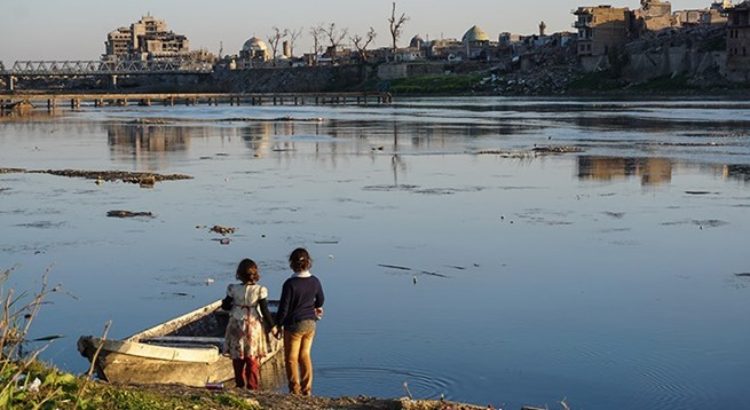
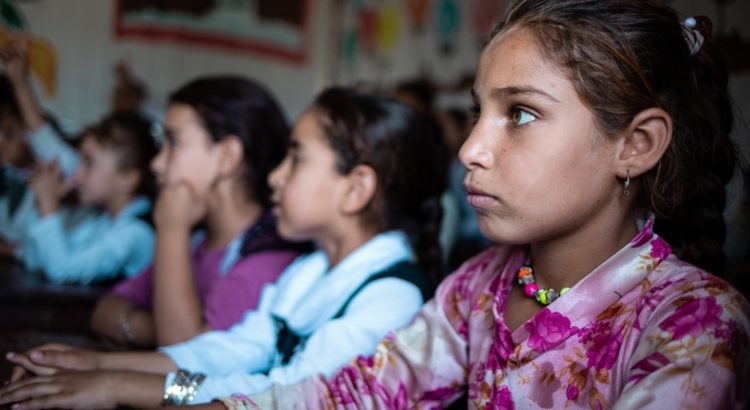

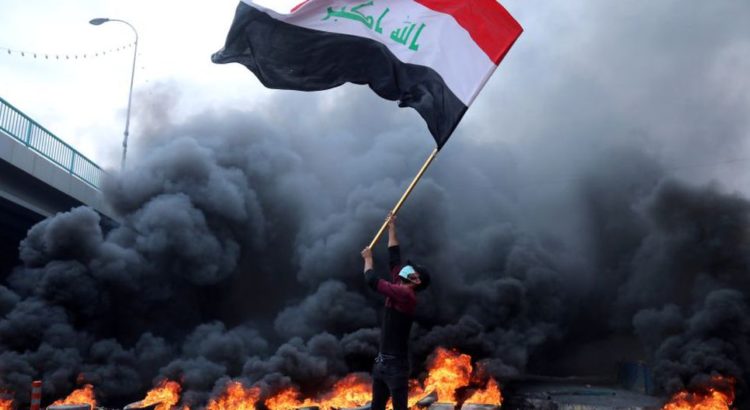
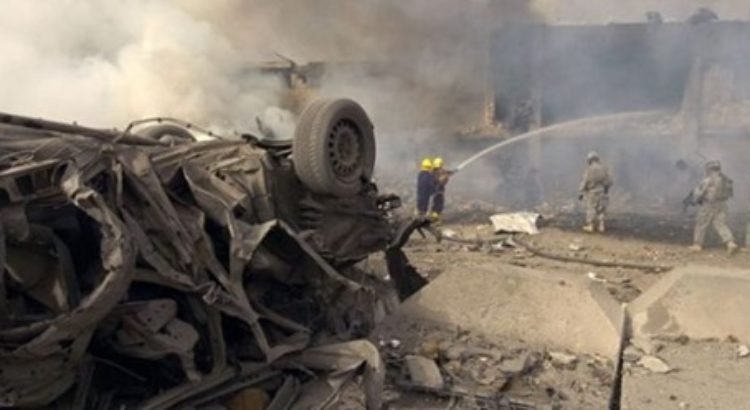
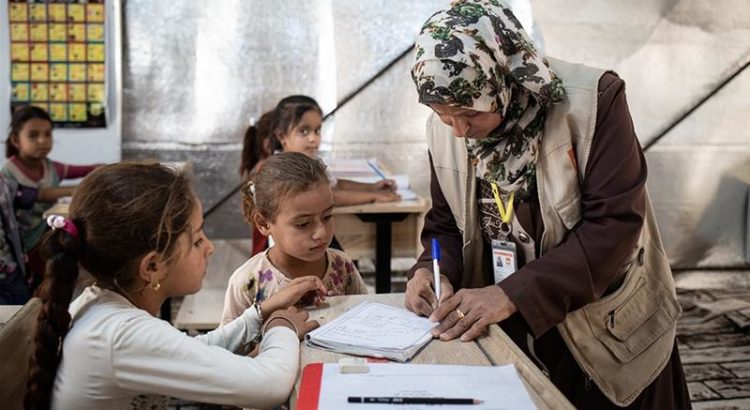
![A teacher counting students in the schoolyard due to a lack of school building - back to school day 2019-2020 in Aljaleel school, Mosul [Tom Peyre-Costa/NRC] A teacher counting students in the schoolyard due to a lack of school building - back to school day 2019-2020 in Aljaleel school, Mosul [Tom Peyre-Costa/NRC]](https://www.aljazeera.com/mritems/Images/2019/10/28/7a0f75c2998c434aa3e66419860053e0_18.jpg)

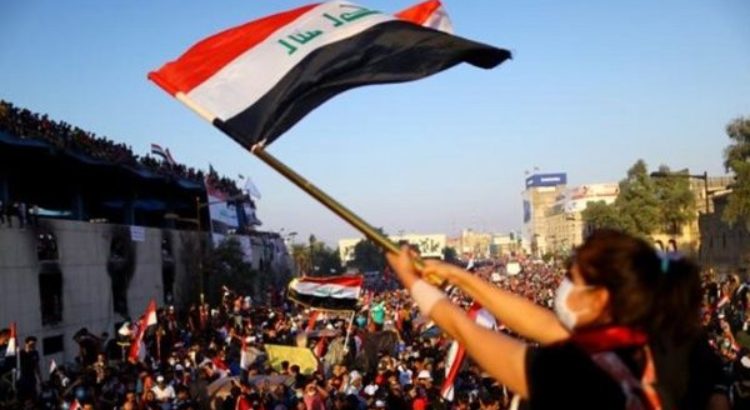


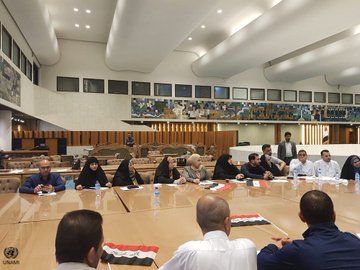
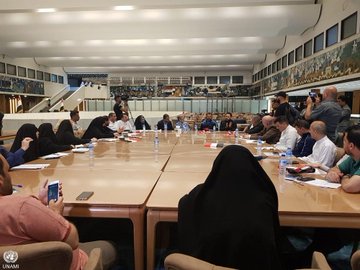
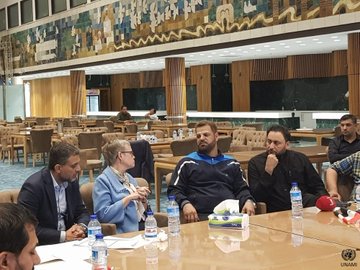







 Users Today : 32
Users Today : 32 Total Users : 35460489
Total Users : 35460489 Views Today : 54
Views Today : 54 Total views : 3419349
Total views : 3419349